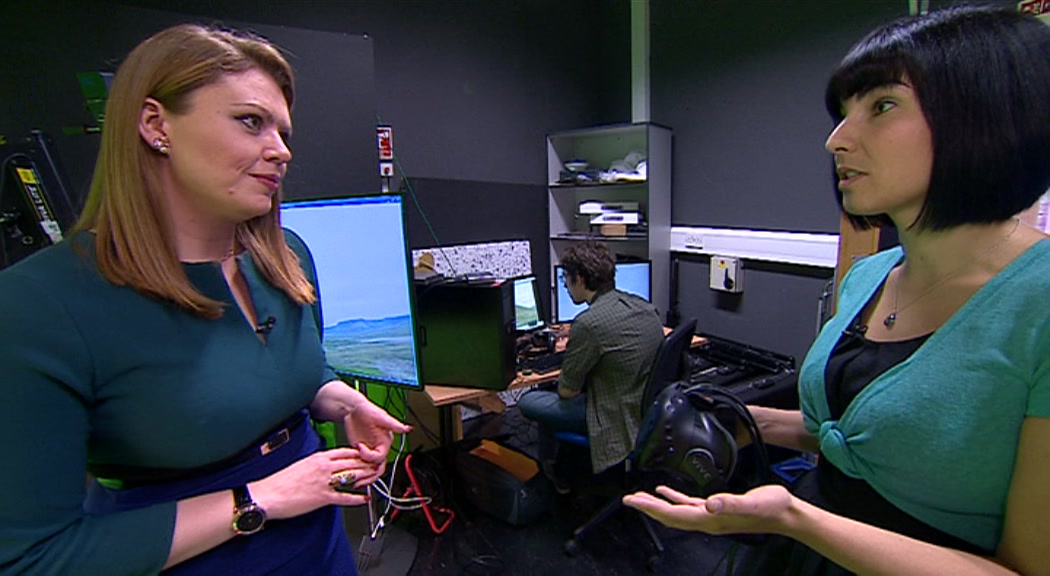
Photo credit: BBC News
Researchers from Staffordshire University’s Centre of Archaeology and Forensic and Crime Science department have been awarded a prestigious research grant to develop new ways to record and present crimes scenes via virtual reality.
Dr Caroline Sturdy Colls will lead the project which will develop and apply novel digital recording methods from archaeology and games technology to complex criminal investigations. Dante Abate, an experienced researcher with a background in digital archaeology, will join the Staffordshire University team to work on the project. The project, funded by a 182.000 Euro EU Marie Sklodowska-Curie grant, will aim to change the way in which buried and concealed evidence is analysed at crime scenes through these new techniques and through an associated programme of training and support for specialists and professionals working in this area.
Dr Caroline Sturdy Colls said:
“Traditional means of documenting, sketching and photographing crime scenes can be laborious and they do not provide data outputs suitable for presentation in Court to non-experts. A number of novel, digital non-invasive methods now exist which have the potential to increase search efficiency and accuracy, permit access to difficult and/or dangerous environments, create a more accurate record of buried or concealed evidence and provide more effective means of presenting evidence in Court”.
One technique that is being trialed is the use of virtual reality (VR) motion capture headsets used in the gaming industry. This method could be used to allow the Police, barristers and jurors to “visit” scenes without actually travelling there. Experts from the Games Design department at Staffordshire University are collaborating on the project, bringing their expertise in virtual reality to crime scene investigation.
Researchers will also work collaboratively with industry leaders in laser scanning – Advanced Laser Imaging – and UK Police Forces. They will work in particular with Staffordshire Police, who formed a Forensic Partnership with the Forensic and Crime Science department earlier this year.
Simon Tweats, head of justice services at Staffordshire Police, said that the project will have major benefits for UK policing:
“Doing that [presenting evidence in court] in a way that is far easier for juries to understand and appreciate – which can only be be good for everybody, for prosecution and defence, in understanding precisely what has happened and what has gone on”.
The research will feature on BBC Midlands Today and local BBC radio stations on the 23rd May. Take a look at the technology being used to examine crime scenes at BBC News Online or read more about the project on our Project page.
